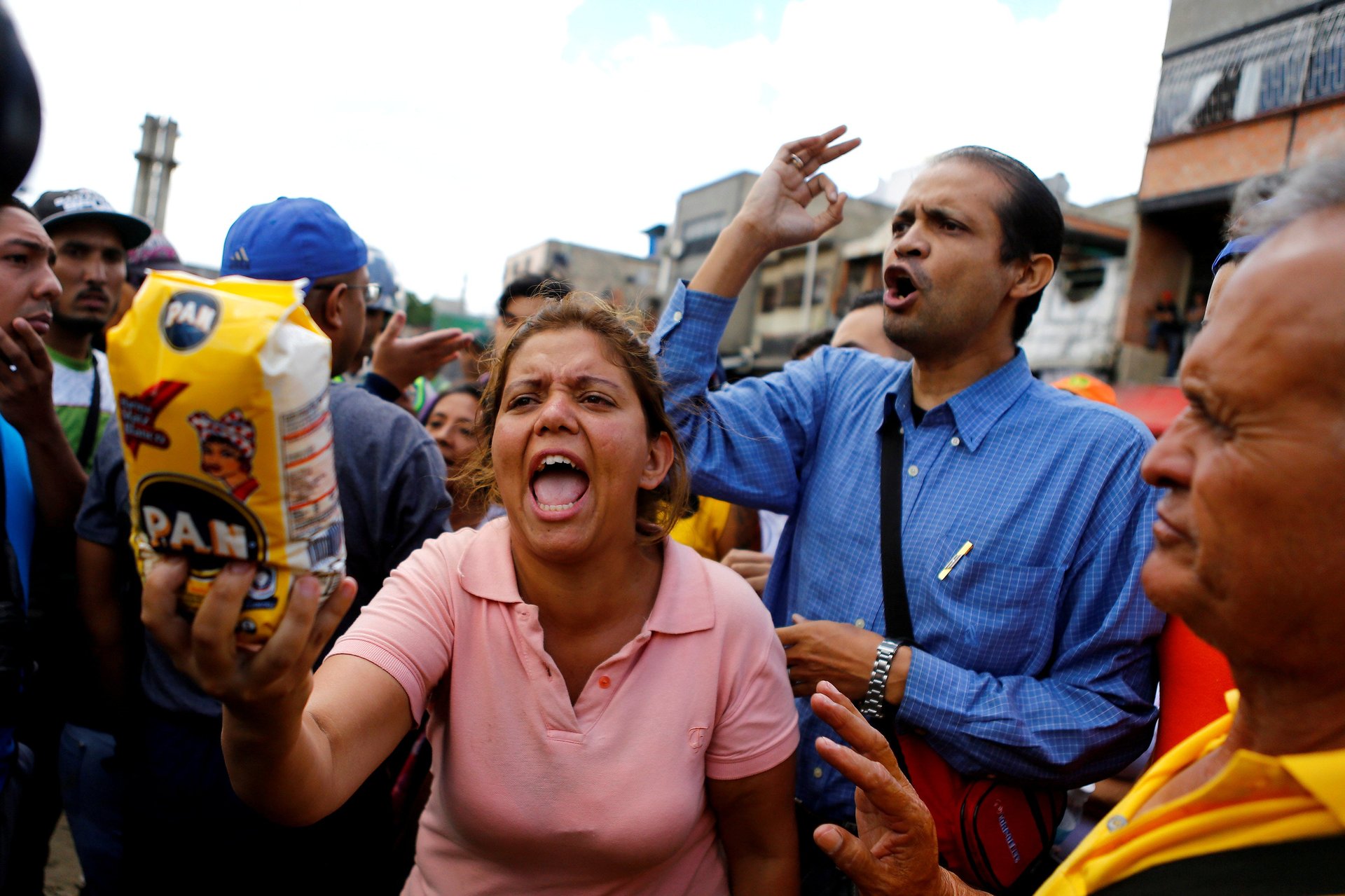Venezuela’s economic crisis is so bad that parents are giving away their children
Could the news from Venezuela possibly get any worse?


Could the news from Venezuela possibly get any worse?
The economic crisis, sparked by the deadly combination of dropping oil prices and an immensely mismanaged economy, has led to food riots and starvation. Practically the entire nation is too broke to eat, and several zoo animals have starved to death.
Now Reuters reports that some parents giving away children they can no longer afford to feed or care for properly. Mothers and fathers are leaving their children with neighbors who are in more fortunate circumstances, extended family members, or state agencies and charities, which report a noticeable increase in the number of incoming children.
Reuters spoke to one family near the city of Carirubana that made the unfathomable decision. Zulay Pulgar, 43, said that she asked a neighbor to begin taking care of her six-year-old daughter in October. “It’s better that she has another family than go into prostitution, drugs or die of hunger,” said Pulgar, whose household of five had been living on US $6 per month. The news agency also learned of cases where infants had been abandoned in still-wealthy districts of other cities.
A similar spike in children being abandoned at state hospitals and adoption agencies was reported in Greece as recently as 2014, four years after that country’s economy crashed.
Economists predict a new currency crisis will make the situation even more dire. About a week ago, president Nicolas Maduro announced that the government will ban 100 bolívar notes —which had been worth about two cents on the black market— and replacing them with several new bills of higher values. The country also closed its borders with Colombia to thwart what it called “mafia hoarding” of Venezuelan money.
People were given 72 hours to deposit their bills in banks, where they were supposed to be replaced by the new notes of 500 to 20,000 bolivars. However, the new high-denomination notes have been delayed, and banks have run out of smaller bills, while markets, bus drivers, and taxis stopped accepting the 100 bolívar bills. Many say ATMs have continued to dispense the useless bills, which represent roughly 50% of all the money in circulation.
Interior minister Nestor Reverol has cited what Francisco Toros, a journalist and political scientist, called a bizarre and outlandish conspiracy theory to justify the government’s demonetization strategy. According to Reverol, says Toros: “More than 300 million of Venezuela’s highest-denomination bank notes have been ferried out of the country in recent months. Huge stacks of 100-bolivar bills now sit in warehouses throughout Central and Eastern Europe — Poland, Ukraine, Switzerland, Germany, the Czech Republic, Macedonia — all part of a devious plot hatched by the U.S. Treasury Department.” American officials, the minister stated, have been collaborating with international crime syndicates to stockpile bolívar, and the U.S. intends to buy the currency with dollars, but only once the Venezuelan regime has been overthrown.
Regardless of such tales, the government’s move will give the bolivar only a quick lift, according to economists, because such controls are among the factors leading to the current mess. To save Venezuela now would require several brutal measures, none of which are likely to gain popular or political approval.